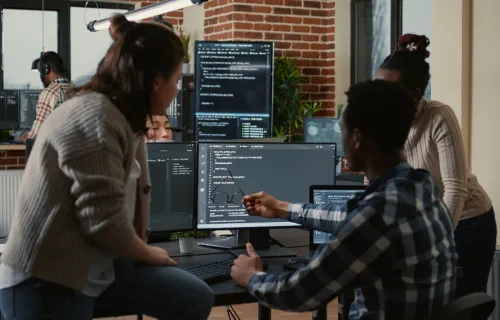Why Just Good Enough is good enough
Not having a ponytail made the difference. In the 1989 Tour de France, after 2,000 miles of peddling — more than 87 hours in the saddle spread over three weeks — Greg LeMond beat Laurent Fignon by eight seconds. He was 0.003% better than his rival, a difference later attributed to the aerodynamic drag caused by Fignon’s ponytail (McGann, 2008). LeMond was just good enough so he was crowned champion, the maillot jaune.
That’s usually the way with sport — you just have to be Just Good Enough. Winning the Grand National by a nose is the same as winning it by 50 lengths; winning the Premiership with the last kick of the season is the same as winning it with games to spare, just ask any Man City fan; Lewis Hamilton won the 2008 F1 championship by overtaking Timo Glock on the last corner of the last race of the season.
In business, Toyota introduced the concept of just-in-time production (Beasley, undated), reducing their costs by not holding large stocks of raw materials; getting the right part to the right person at the right time is Just Good Enough, there’s no need to hold large inventories.
This all makes sense in theory, but in practice can be difficult to achieve. In the world of IT, doing things the traditional way is the very opposite of Just Good Enough. You have to estimate what infrastructure you’ll need and find a way to finance it. If you’re lucky, your prediction will be accurate and your investment won’t be wasted — however there’s a sporting chance you could be funding unneeded capacity or even that you’ll be short on what you need. It can seriously impact on your ability to deliver.
At least that’s how it was until the cloud came along.
The cloud means you can be Just Good Enough. It’s flexible so you don’t have to plan for the worst-case scenario, planning for what you’ll normally need is Just Good Enough because you can expand or contract the services, often in real-time. You can access the services wherever you are and whenever you want and on pretty much whichever device you want. The possibilities are endless.
So if you’re looking to improve your efficiency, if you’re looking to improve your abilities, if you’re looking to get every drop of value from your budget, if you want what you need right now — then look to the cloud.
Beasley J. E., (undated) OR-Notes [online] http://people.brunel.ac.uk/~mastjjb/jeb/or/jit.html (Accessed 28 November 2013).
McGann, Bill and Carol McGann (2008) The Story of the Tour de France, Vol 2. Indianapolis, IN: Dog Ear Publishing, 2008. ISBN 1-59858-608-4. (cited in http://en.wikipedia.org/wiki/Laurent_Fignon#cite_note-28, accessed 27 November 2013).




